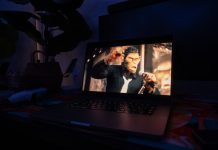Oscar Cortez
Staff Writer
Photo By: Oscar Cortez
What was your education path like?
“I’m not the typical faculty member. I have my Ph.D. in Communication and Culture from the University of New Mexico and I did that late in life. Then I was an assistant professor at Southern Illinois in the Speech Communication Department; my area was in intercultural communication, but I’m particularly interested in issues about language and identity. That’s how I ended up in the linguistics department here; it was a closer fit. So I teach some in communication and I teach some in linguistics.”
Could you describe linguistics in general?
“Some folks look at linguistics as a model of a closed system, focusing on the logic of how the structure works. Other folks would say language is systematic, but how is it really being used? How are these language structures shaped over time by cognition, culture and use? The ways language is being used is also influencing the structure itself, while the language structure is shaping our interactions! [It’s more] like a feedback loop.”
How would you describe your two departments?
“Both of the departments are some of the best in the country. The Linguistics department [is great] for people looking at language in social use and has extremely accomplished faculty who are very cooperative and collegial, and very much dedicated to teaching as well as research. And they take a range of approaches to studying languages, documentation of endangered languages, also looking at language in social use and interaction, language typologies and language families around the world. The Communications department also has an excellent faculty and I don’t think you will find that unusual for UCSB in general. Good teachers and scholars. They are very good mentors of graduate students. But they take very different approaches to studying human communication.”
What are your thoughts on the political crisis going on in Egypt?
“I think part of the issue is what it’s showing us is that there’s so much that we don’t understand about the lived experiences, the multiple varied experiences in the so-called Arab world. There are layers that connect with everyday life, about politics, distribution of wealth, opportunities in these locations as well as how global policies have worked to support this regime in Egypt. I’m really struck by how young folks in these areas are well informed and how angry they are with the limited opportunity for a sustained period of time.”
It seems like that’s a big issue to you, the USA/Afghanistan situation.
“It’s broader than that. It’s part of the whole global interconnection between all of us and I don’t think we can live our lives in isolation from others, whether we want to or not. Because there’s this interconnection—politically, economically, etc.—and there are tensions between these different ways of seeing things. The U.S. is very engaged throughout the world, yet many of us Americans aren’t well informed about global issues, or even local issues in a global context outside of our own experiences.”
Are there any things in particular you’d like your students to know about you?
“That I respect them for all kinds of reasons. I understand that social life is important, but I also think there’s a real sincerity for students to try to understand the world. There can sometimes be fatigue about understanding issues of race or identity.
Sometimes we want to say ‘let’s just forget about it,’ and yet these issues don’t go away.”
What do you think about the recent CBS News article that states that college students aren’t learning much in college (“Study: College Students Not Learning Much”)?
“I think college students are learning a lot, [but] not all in the classroom. But I think college students are learning a lot in the classroom as well. I think that the faculty now is more available to students than ever. You’ve got email and all kinds of accessibility methods. I think this fear of the demise of college education lies in the difficulty of keeping the quality of education sustained, in particular when you’ve got cutbacks. It’s a very different experience when you’re one of 45 students in a classroom versus one of 250 and [requires] very different teaching approaches.”
What do you think about Wikipedia in general and do you approve its use as a reliable source in essays?
“Ah Wikipedia… I think it’s a wonderful resource to get a general overview of a concept or person. So I would recommend it as a first step in researching a concept. But I would not approve it as a reliable source in essays or otherwise. Rather I would encourage a student, or other person, to use Wikipedia information as a starting point of investigation—check the more scholarly sources cited in their reviews.”
How many languages do you speak and what are they?
“I have studied a number of languages including French, Japanese, Cantonese, Mandarin and Spanish. But I am sorry to say that I haven’t had the opportunity to do a sustained study with any of these. So I have some basic proficiency in Mandarin and intermediate in Spanish, but couldn’t really say I ‘speak them.’”
Favorites
Films: Wag the Dog
Book: 3 cups of Tea
TV Show: The Good Wife
Coffee or Drink: Iced coffees
Junk Food/Snack: Chocolates
Sports or teams: Southern Illinois Salukis
Country to Visit: Taiwan
Languages: English, Mandarin Chinese
People/Inspirations: Thich Nhat Hanh
Vacation Spot: Kaua’i, Hawaii
Melissa Curtin is Adjunct Assistant Professor in the Linguistics Department of UCSB. Her specialties include intercultural communication, theories of cultural adjustment, ethnography, language and identity, and semiotic landscapes.













Comments are closed.